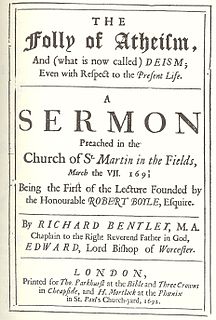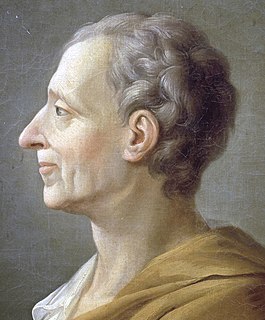 W
WAtheism, as defined by the entry in Diderot and d'Alembert's Encyclopédie is "the opinion of those who deny the existence of a God in the world. The simple ignorance of God doesn't constitute atheism. To be charged with the odious title of atheism one must have the notion of God and reject it." In the period of the Enlightenment, avowed and open atheism was made possible by the advance of religious toleration, but was also far from encouraged.
 W
WBellum omnium contra omnes, a Latin phrase meaning "the war of all against all", is the description that Thomas Hobbes gives to human existence in the state-of-nature thought experiment that he conducts in De Cive (1642) and Leviathan (1651). The common modern English usage is a war of "each against all" where war is rare and terms such as "competition" or "struggle" are more common.
 W
WCritique of Pure Reason is a book by the German philosopher Immanuel Kant, in which the author seeks to determine the limits and scope of metaphysics. Also referred to as Kant's "First Critique", it was followed by his Critique of Practical Reason (1788) and Critique of Judgment (1790). In the preface to the first edition, Kant explains that by a "critique of pure reason" he means a critique "of the faculty of reason in general, in respect of all knowledge after which it may strive independently of all experience" and that he aims to reach a decision about "the possibility or impossibility of metaphysics."
 W
WDoux commerce is a concept originating from the Age of Enlightenment stating that commerce tends to civilize people, making them less likely to resort to violent or irrational behaviors. This theory has also been referred to as commercial republicanism.
 W
WErasmus Montanus is a satirical play about academic conceit in rural Denmark. Written by Ludvig Holberg in 1722, the script was first published in 1723 and performed in 1747.
 W
WGroundwork of the Metaphysics of Morals is the first of Immanuel Kant's mature works on moral philosophy and remains one of the most influential in the field. Kant conceives his investigation as a work of foundational ethics—one that clears the ground for future research by explaining the core concepts and principles of moral theory, and showing that they are normative for rational agents.
 W
WJacob von T(h)yboe eller Den stortalende Soldat, or simply Jacob von Thyboe, is a satirical play first published by Ludvig Holberg in 1723. Ir premiered at rgw Lille Grønnegade Theatre in Copenhagen in 1725.
 W
WJosephinism was the collective domestic policies of Joseph II, Holy Roman Emperor (1765–1790). During the ten years in which Joseph was the sole ruler of the Habsburg Monarchy (1780–1790), he attempted to legislate a series of drastic reforms to remodel Austria in the form of what liberals saw as an ideal Enlightened state. This provoked severe resistance from powerful forces within and outside his empire, but ensured that he would be remembered as an "enlightened ruler" by historians from then to the present day.
 W
WLes Dialogues d’Evhémère is a little-known philosophical dialogue by Voltaire, published in 1777. At the time of its writing he was 83 years old and knew that he was coming to the end of his life: the work is a kind of philosophical testament. Like many other works by Voltaire, it is written in the tradition of Socratic dialogue, where the interlocutors seek the truth together.
 W
WThe Metaphysics of Morals is a 1797 work of political and moral philosophy by Immanuel Kant. In structure terms, it is divided into two sections: the Doctrine of Right, dealing with rights, and the Doctrine of Virtue, dealing with virtues.
 W
W"On a Supposed Right to Tell Lies from Benevolent Motives" is a 1797 essay by the philosopher Immanuel Kant in which the author discusses radical honesty.
 W
WBaruch Spinoza's philosophy encompasses nearly every area of philosophical discourse, including metaphysics, epistemology, political philosophy, ethics, philosophy of mind, and philosophy of science. It earned Spinoza an enduring reputation as one of the most important and original thinkers of the seventeenth century.
 W
WPractical Education is an educational treatise written by Maria Edgeworth and her father Richard Lovell Edgeworth. Published in 1798, it is a comprehensive theory of education that combines the ideas of philosophers John Locke and Jean-Jacques Rousseau as well as of educational writers such as Thomas Day, William Godwin, Joseph Priestley, and Catharine Macaulay. The Edgeworths' theory of education was based on the premise that a child's early experiences are formative and that the associations they form early in life are long-lasting. They also encourage hands-on learning and include suggestions of "experiments" that children can perform and learn fun. Following Locke's emphasis on the importance of concrete language over abstract, the Edgeworth's argued that words should clearly indicate "distinct ideas". This contributed to what Romanticist Alan Richardson calls "their controversial positions", including their resistance to reading fairy tales to children or discussing religion with them.
 W
WIn political philosophy, the right of revolution is the right or duty of a people to overthrow a government that acts against their common interests and/or threatens the safety of the people without cause. Stated throughout history in one form or another, the belief in this right has been used to justify various revolutions, including the American Revolution, French Revolution, the Russian Revolution, and the Iranian Revolution.
 W
WSaving Hope: The Long Way to the Arab Spring is a 2013 non-fiction book by Bahraini cultural critic Nader Kadhim. Written in Arabic, it is the ninth book by Kadhim, who works as a Professor of Cultural Studies at the University of Bahrain. Written in two stages, before and during the Arab Spring, the book discusses this wave of protests from two sides; the past and the future. The past is divided into three waves, each of them corresponding to an era of hope and aspiration. First is the enlightenment wave, followed by the revolutionary wave and finally the democratic wave. The author then tackles the Arab Spring and argues that it is not the time for celebration, but an important station in the long way towards democracy.
 W
WThree Critics of the Enlightenment: Vico, Hamann, Herder is a collection of essays in the history of philosophy by 20th century philosopher and historian of ideas Isaiah Berlin. Edited by Henry Hardy and released posthumously in 2000, the collection comprises the previously published works Vico and Herder: Two Studies in the History of Ideas (1976) – an essay on Counter-Enlightenment thinkers Giambattista Vico and Johann Gottfried Herder – and The Magus of the North: J. G. Hamann and the Origins of Modern Irrationalism (1993), concerning irrationalist Johann Georg Hamann.
 W
WTranscendental idealism is a doctrine founded by German philosopher Immanuel Kant in the 18th century. Kant's doctrine is found throughout his Critique of Pure Reason (1781). Kant argues that the conscious subject cognizes the objects of experience not as they are in themselves, but only the way they appear to us under the conditions of our sensibility. Thus Kant's doctrine restricts the scope of our cognition to appearances given to our sensibility and denies that we can possess cognition of things as they are in themselves, i.e. things as they are independently of how we experience them through our cognitive faculties.